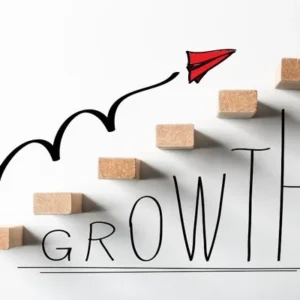The Philippines has made steady progress in recent years, but its economic growth continues to lag behind regional peers. Between 2010 and 2024, the country’s GDP grew at an average of 5.3 percent—slower than Korea and Malaysia’s 7–10 percent growth during similar development phases. Most new jobs are concentrated in low-productivity, low-wage service sectors, and regional disparities persist, particularly in female labor force participation. Limited innovation and slow growth among top-performing firms also threaten the Philippines’ vision of achieving high-income, poverty-free status by 2040.
To address these challenges, the World Bank Group (WBG) developed the Philippines Growth and Jobs Report (GJR) through extensive collaboration with government agencies, academia, and the private sector. The report outlines a comprehensive reform agenda focused on creating more and better-quality jobs by expanding opportunities and strengthening human and institutional capabilities. Key recommendations include boosting investment and innovation, enhancing local government revenue mobilization, deepening capital markets, streamlining business regulations, and modernizing procurement systems. It also emphasizes improving education and training, addressing skills mismatches, and increasing women’s labor participation.
These priorities underpin the first Growth and Jobs Development Policy Loan (GJ DPL), which supports reforms in property valuation, procurement, capital markets, digital business registration, and new education and training laws. The WBG’s “One WBG” approach integrates the World Bank’s policy support with IFC initiatives in SME finance and capital market development. Partnerships with multilateral development banks, including the Asian Development Bank (ADB), are reinforcing reform momentum. The GJR also serves as a model for similar growth and jobs strategies in other developing countries.
Released in July 2025, the GJR is the first flagship report of its kind and is already shaping policy debates, guiding WBG engagement, and influencing lending decisions in the Philippines. The report identifies major barriers to growth and employment and offers 47 targeted recommendations that could boost annual GDP growth by 1.4 percentage points and create 5.1 million better-paying jobs by 2040. Its evidence-based approach is informing key policy frameworks, including the Philippines’ new Country Partnership Framework (2025–2031), and has helped shape reforms in taxation, business regulation, capital markets, and human capital development.
According to Secretary Arsenio Balisacan of the Department of Economic Planning and Development, the report provided “a clear map of what holds back faster growth and job creation,” sharpening the government’s focus on investment, skills, and fiscal reforms. Implementing the report’s recommendations could raise real wages by 13 percent, generate millions of quality jobs, and accelerate progress toward inclusive growth.
The GJR highlights that solving the jobs challenge requires a whole-of-society approach involving government, private sector, and civil society collaboration. By linking job creation with national development goals, the report fosters shared ownership of reforms. It also demonstrates that combining rigorous analysis with broad stakeholder engagement leads to actionable, impactful policies. The standardized yet adaptable framework strengthens national jobs strategies and provides a model for replication in other countries.
Looking ahead, the GJR will continue to guide the Philippines’ growth and employment agenda, including the Department of Trade and Industry’s strategy to support exporters and integrate local firms into global value chains. It will also serve as a key reference point for ongoing policy dialogue, reform tracking, and World Bank engagement. Lessons from the Philippines are now informing similar Growth and Jobs Reports in other developing nations, underscoring its value as a blueprint for inclusive and sustainable economic transformation.






